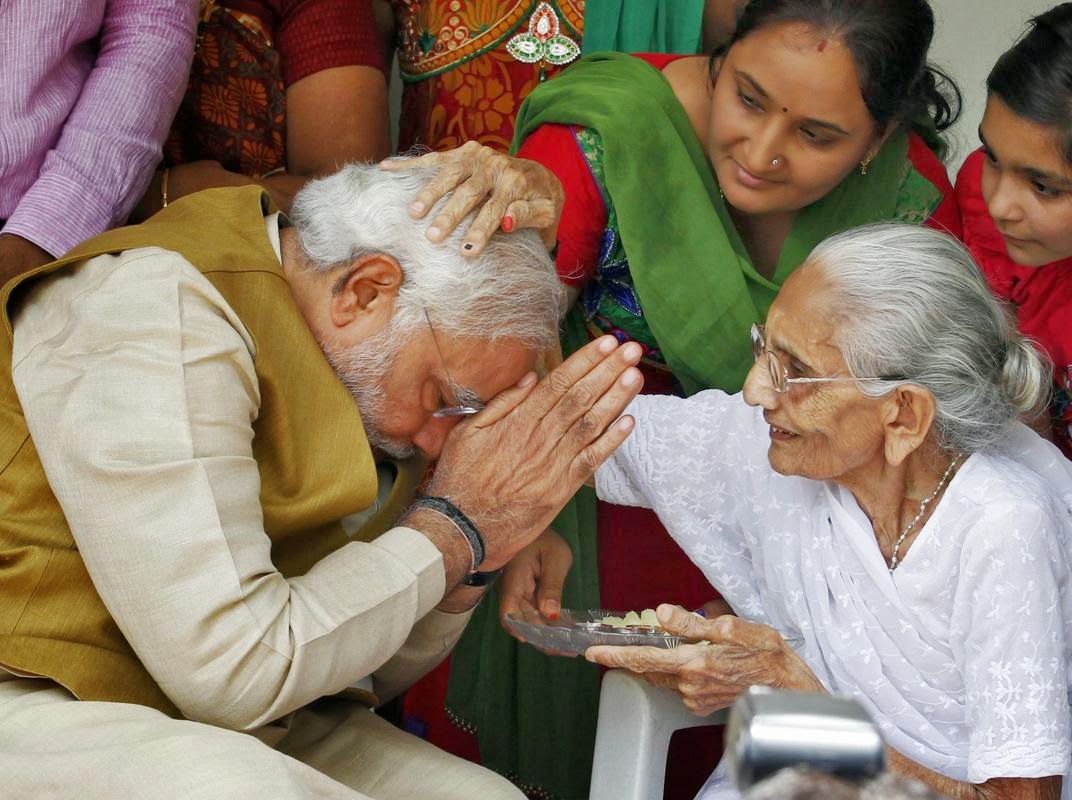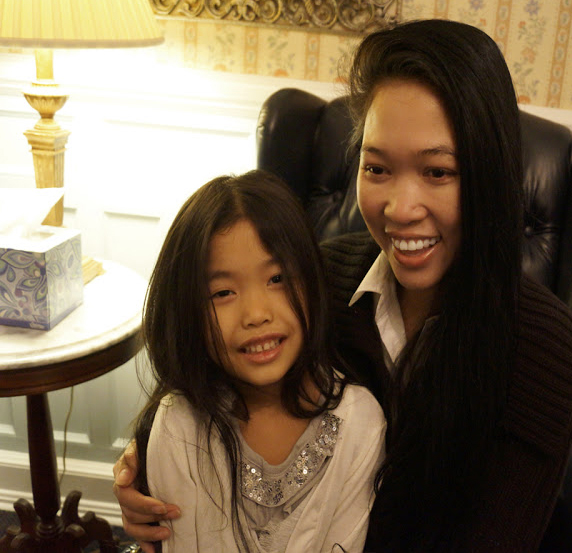India opposition wins landslide, early tally shows
By ASHOK SHARMA
Associated Press, May 16, 2014
NEW DELHI (AP) — Indian opposition leader Narendra Modi and his party
won national elections in a landslide Friday, preliminary results
showed, driving the long-dominant Congress party out of power in the
most commanding victory India has seen in more than a quarter century.
The
Hindu nationalist Bharatiya Janata Party captured a commanding lead for
at least 272 seats in the lower house of Parliament, the majority
needed to create a government without forming a coalition with smaller
parties. The Congress party trailed well behind with leads in only 42
seats, its worst showing ever.
Full results are expected later in
the day but it’s unlikely that Modi’s party would see a significant
reversal, putting him on track to be the next prime minister.
With a note of triumph, Modi tweeted: “India has won!” as the results came out.
Television
channels showed an emotional Modi meeting his mother and touching her
feet, a traditional gesture when Hindus seek the blessings of an older
relative.
Caption: Hindu nationalist Narendra Modi (L), the prime ministerial candidate for
India’s main opposition Bharatiya Janata Party (BJP), seeks blessings
from his mother Heeraben at her residence in Gandhinagar in the western
Indian state of Gujarat May 16, 2014. Modi will be the next prime
minister of India, with counting trends showing the pro-business Hindu
nationalist and his party headed for the most resounding election
victory the country has seen in thirty years. (REUTERS/Amit Dave)
His mother then marked his forehead with vermilion and fed him sweets.
The
BJP’s slick and well-financed campaign promised a revival of economic
growth, and took advantage of widespread dissatisfaction with the
Congress party, plagued by scandals and led by a young scion of India’s
Nehru-Gandhi family who was seen as privileged and out of touch with the
people.
The Congress party, which has been at the center of
Indian politics for most of the country’s history since independence
from Britain, conceded defeat.
“I admit that in 2014 the result
is worse than our worse-case scenario. The result is a shock. But the
Congress party has a deep reservoir of strength,” party leader Jairam
Ramesh said.
Outgoing Prime Minister Manmohan Singh called Modi to congratulate him, his office said, adding that Singh would send his resignation to President Pranab Mukerjee on Saturday.
At BJP headquarters in New Delhi, workers handed out sweets, set off firecrackers and danced outside in the streets. BJP President Rajnath Singh congratulated party workers for what he described as a “historic victory.”
“In the history of independent India, no political party has defeated the Congress party with such a wide margin,” Singh told a news conference that opened with the blowing of a conch shell, a traditional start for most Hindu rituals.
There was a record turnout in the election,
with 66.38 percent of India’s 814 million eligible voters casting
ballots during the six-week contest, which began April 7 and was held in
stages across the country. Turnout in the 2009 general election was
58.13 percent.
Final results were to be announced later Friday.
If the BJP stays ahead of the 272-mark it would be the first time a
single party has won a majority since the 1984 national election.
Caption: Supporters of Hindu nationalist Narendra Modi, the prime ministerial candidate for India’s main opposition Bharatiya Janata Party (BJP), shower confetti from atop a bus in the western Indian city of Ahmedabad May 15, 2014. (REUTERS/Amit Dave)
Exit
polls by at least six major Indian TV stations had predicted a BJP-led
coalition would win between 249 and 289 seats in the 543-seat Lok Sabha,
or lower house of Parliament.
The Nehru-Gandhi family, which has
ruled India for all but 10 years since the country won independence
from British rule in 1947, was suffering its worst-ever political
drubbing.
The
Congress party attempted to position its 43-year-old leader, Rahul
Gandhi, as youthful and capable of boosting the country’s struggling
economy. But many Indians see him as being out of touch with reality.
His privileged background has made him appear aloof and removed from the
concerns of most people.
In comparison, Modi’s campaign was seen
by many as a media and marketing coup for a man whose background ties
him to bloodshed in his home state of Gujarat, where communal rioting in
2002 left more than 1,000 people dead, most of them Muslims. Modi is
accused of doing little to stop the rampage, though he denies any
wrongdoing and has never been charged with a crime.
He managed to
hammer away at Gandhi — specifically the perception that he is nothing
more than a feudal prince from a family that views ruling the country as
its birthright.
In sharp contrast to the street parties outside
the BJP office, a sober scene played out in front of Congress
headquarters, where few showed up despite barricades erected to protect
supporters from passing road traffic.
One small group of women
sat on the sidewalk, lighting a ritual prayer fire to invoke divine help
for the party while a handwritten sign standing by read, “May Rahul
Gandhi be the next prime minister.”



















